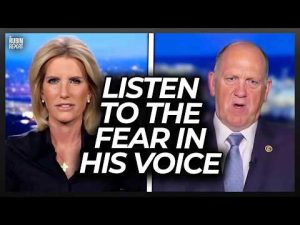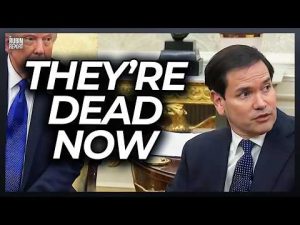As yet another government shutdown looms on the horizon, imagine the theater of political gamesmanship that is playing out in Washington, D.C., a worthy spectacle for those who cherish drama over substance. In this production, the Republican and Democratic players present their recurring roles with impressive consistency, blocking bills and wielding leverage like a sword, all in the name of what’s best for America—or, perhaps more accurately, what’s best for their own party interests.
The shutdown, now on its 23rd day, has morphed from a budgetary issue into a full-blown spectacle of finger-pointing and strategy sessions. Republicans have rallied to present solutions, offering up a test vote to fund essential services, ensuring that active-duty military, air traffic controllers, and law enforcement can continue their vital work. Yet, Senate Democrats, in true defiance, appear to view this standoff as a rare opportunity to exert pressure, using it as leverage against their political adversaries with the confidence of seasoned poker players ready to call a bluff.
It’s worth noting the Democrats’ notable lack of responsibility acknowledgment in this mess. Apparently, they’ve mastered the art of convincing themselves, if not the public, that the resultant federal freeze is someone else’s fault entirely. Katherine Clark, a high-ranking Democrat, has made her stance rather clear—families might be suffering, but this, in her view, is merely a political instrument at an “inflection point” of budgeting strategy. One might almost admire the bluntness if it weren’t so frustratingly dismissive.
In a rare shift from the typical partisan chorus, Senator John Fetterman emerges to criticize his party’s hardline stance. He seems to echo a sentiment that one might wish reverberated more across the aisles: the pragmatic belief in prioritizing country over party. Fetterman stands willing to break rank to ensure that essential workers and military personnel aren’t mere pawns in this political chess game. It’s almost like a splash of cool water in the overheated rhetoric of shutdown posturing—refreshing albeit unexpected from the usual role Fetterman might play.
On the Republican side, there’s no shortage of attempts to negotiate a truce and keep the government operational. They’ve given Democrats numerous opportunities—thirteen, to be precise—to pass resolutions that would have previously gained wide support. Yet, here we are, locked in an intense stand-off where ideology seems to dictate moves more than the public good. Flashbacks to previous shutdowns remind us that resolution will only come when the inconvenience becomes unavoidable, much like a delayed flight that can no longer be ignored when passengers start to riot at the gate.
The play continues, but one might wonder about the audience’s patience. Whether this shutdown will finally spotlight who deserves the curtain call—or the boot—remains to be seen. But as the cycle of blame turns yet again, one can’t help but wish for a rewrite: one where common sense and the welfare of hardworking Americans take center stage, over political leverage and grandstanding. Until then, the lights dim, and the actors continue their roles on the age-old stage of government shutdown.







